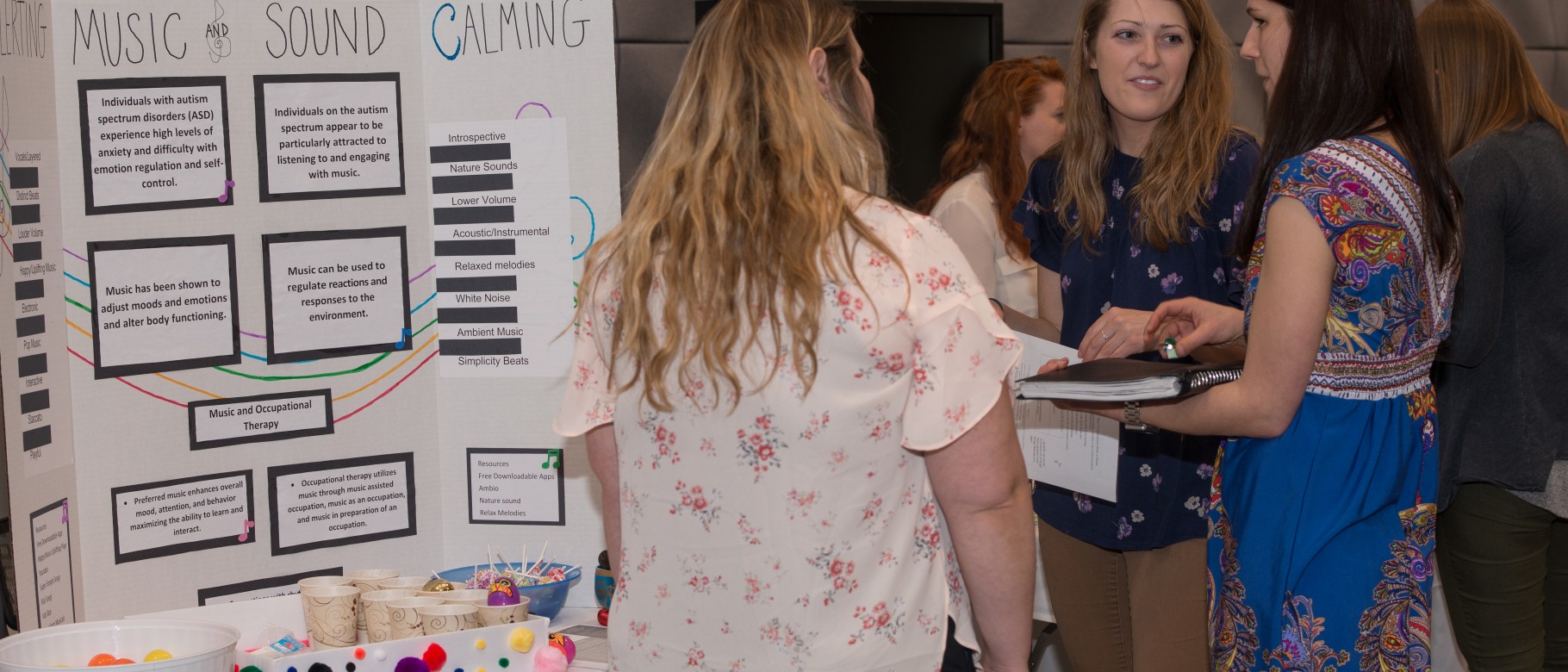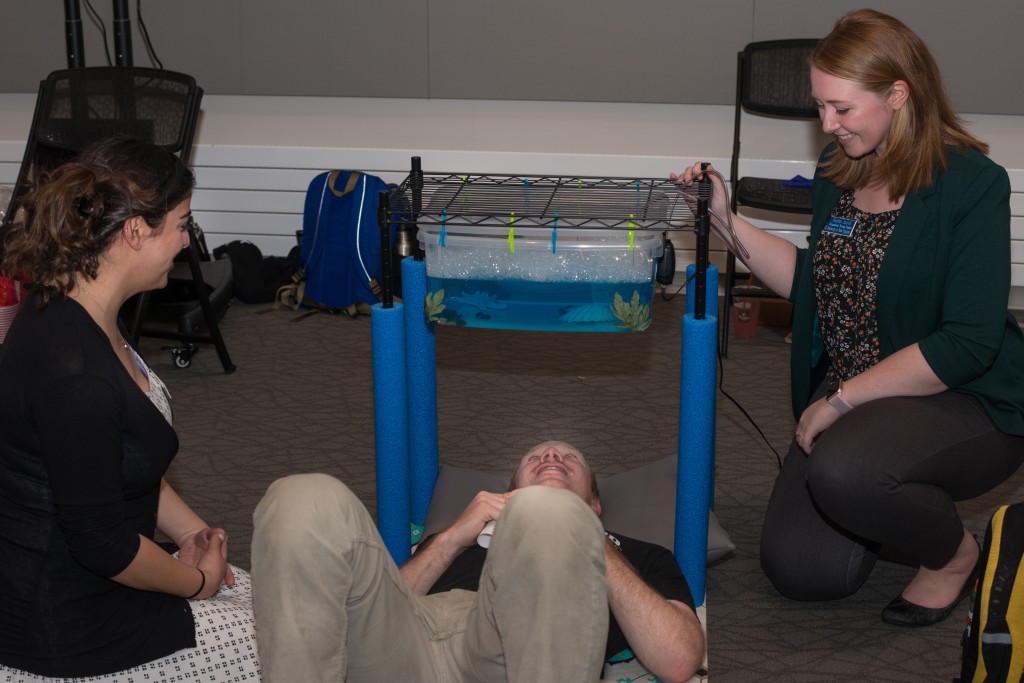Embracing the World of Autism: UNE event provides resources for children and families

The University of New England Occupational Therapy program and the Maine LEND (Leadership Education in Neurodevelopmental and Related Disabilities) program hosted an event on April 26, 2018 that showcased the creative adaptive work of occupational therapy students and highlighted evidence-based interventions for children and families living with autism.
Over 100 people attended Adaptive Occupations and Embracing the World of Autism Expo at Innovation Hall on UNE’s Portland Campus, where 51 M.S.O.T. students from the class of 2019 displayed innovative projects including adaptive music, sensory bins, a crash pad, social skills, games and adapted yoga for children. Expo stations were designed for students, professionals, children and families to understand the many evidence-based interventions for children and youth on the autism spectrum.
The stations addressed interventions to facilitate occupational performance of play, eating and feeding, family centered practice and the use of visual systems to facilitate daily routines at home and school. Faculty advisors for this event were Assistant Clinical Professor Elizabeth Crampsey, M.S., OTR/L, BCPR, Clinical Professor Kathryn Loukas, O.T.D., M.S., OTR/L, FAOTA, and Adjunct Professor Stacy Maguire with Teaching Assistants Emily Marvullo (M.S.O.T. ‘18) and Kira Shollenberger (M.S.O.T. ‘18). Students embraced the opportunity to understand children and families living with autism and offered a tremendous hands-on experience for the community.
To learn more about the University of New England’s Westbrook College of Health Professions visit www.une.edu/wchp
To learn more about the Maine LEND program, visit www.une.edu/LEND
To apply, visit www.une.edu/admissions
